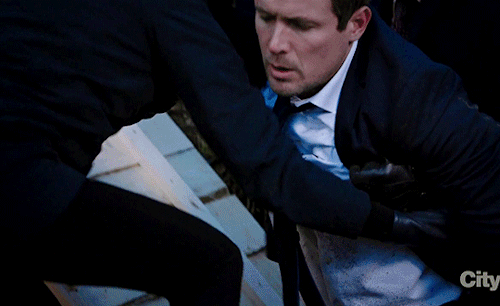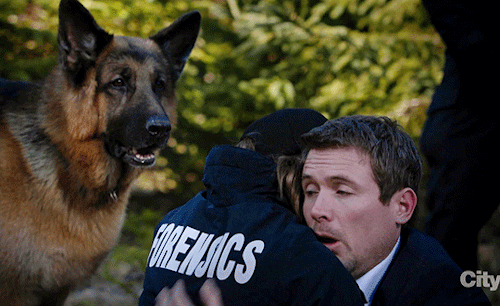A Brief Guide On How To Punctuate Dialogue
A brief guide on how to punctuate dialogue
Punctuation in dialogue is one of the easiest things to get wrong in writing, and, frustratingly, it can be hard to find decent teaching resources. So if you’re struggling to tell whether to use a comma or a period, this guide is for you.
1) Every time a new character speaks, the first line of their dialogue must be set apart by a paragraph break.
Right:
“I think Jeff Bezos might be a lizard,” said Bo.
“Not this again,” I replied.
Wrong:
“I think Jeff Bezos might be a lizard,” said Bo. “Not this again,” I replied.
2) Only direct dialogue needs quotation marks. Direct dialogue is used when someone is speaking. Indirect dialogue is a summary of what was said.
Direct:
“Come on, Jeff, get ‘em!”
Indirect:
He told Jeff to go get ‘em.
3) Punctuation always goes inside quotation marks.
Right:
“What would you prefer?”
“A goat cheese salad.”
Wrong:
“What would you prefer”?
“A goat cheese salad”.
4) If you follow or start a quote with a dialogue tag, you end the quote with a comma.
Right:
“Welcome to the internet,” he said.
She asked, “Can I look around?”
Wrong:
“Welcome to the internet.” He said.
She asked. “Can I look around?”
5) But, if you follow or start a quote with an action, you use a period.
Right:
“Welcome to the internet.” He smiled.
Her eyes flicked to the screen. “Can I look around?”
Wrong:
“Welcome to the internet,” he smiled.
Her eyes flicked to the screen, “Can I look around?”
6) When breaking up dialogue with a tag, use two commas. Or, if the first piece of dialogue is a complete sentence, use a comma and then a period.
“Yes,” he replied, “an avocado.” (split sentence)
“I hoped it wouldn’t come to this,” she said. “I loved that avocado.” (full sentence)
7) You may have noticed there are two different quotation marks ( ‘ and “). And when putting a quote inside a quote, you need to use the opposite style of quotation.
Roger looked up. “And then he said, ‘I didn’t steal the avocado.’”
Or:
Roger looked up. ‘And then he said, “I didn’t steal the avocado.”’
(Using ‘ or “ often depends on personal choice. Although Brits like to use ‘ and Americans tend to use “ for their main dialogue)
So that’s my short guide to the main rules when punctuating dialogue! If you have any questions about less common rules, let me know.
-
 uchihanobourei liked this · 9 months ago
uchihanobourei liked this · 9 months ago -
 d0g-m0tif liked this · 10 months ago
d0g-m0tif liked this · 10 months ago -
 xlazy-rosex liked this · 11 months ago
xlazy-rosex liked this · 11 months ago -
 justagirlwithblog liked this · 11 months ago
justagirlwithblog liked this · 11 months ago -
 teabunnypot liked this · 1 year ago
teabunnypot liked this · 1 year ago -
 melisnonstop reblogged this · 1 year ago
melisnonstop reblogged this · 1 year ago -
 mprods liked this · 1 year ago
mprods liked this · 1 year ago -
 writingconsciousness reblogged this · 1 year ago
writingconsciousness reblogged this · 1 year ago -
 kurapikau liked this · 1 year ago
kurapikau liked this · 1 year ago -
 bossbabylouis liked this · 1 year ago
bossbabylouis liked this · 1 year ago -
 puyonlilah liked this · 1 year ago
puyonlilah liked this · 1 year ago -
 allupallu liked this · 1 year ago
allupallu liked this · 1 year ago -
 hervygervy liked this · 1 year ago
hervygervy liked this · 1 year ago -
 shinyssideblog reblogged this · 1 year ago
shinyssideblog reblogged this · 1 year ago -
 heedoodles reblogged this · 1 year ago
heedoodles reblogged this · 1 year ago -
 detoxed-retox liked this · 1 year ago
detoxed-retox liked this · 1 year ago -
 lostinthewanderingblue liked this · 1 year ago
lostinthewanderingblue liked this · 1 year ago -
 asunamegamanmodelo liked this · 1 year ago
asunamegamanmodelo liked this · 1 year ago -
 alurafiremender liked this · 1 year ago
alurafiremender liked this · 1 year ago -
 shinysamurott9 liked this · 1 year ago
shinysamurott9 liked this · 1 year ago -
 turstrigo reblogged this · 1 year ago
turstrigo reblogged this · 1 year ago -
 turstrigo liked this · 1 year ago
turstrigo liked this · 1 year ago -
 tyrantchimera reblogged this · 1 year ago
tyrantchimera reblogged this · 1 year ago -
 relembla reblogged this · 1 year ago
relembla reblogged this · 1 year ago -
 relembla liked this · 1 year ago
relembla liked this · 1 year ago -
 legendaryandroid reblogged this · 1 year ago
legendaryandroid reblogged this · 1 year ago -
 rookyrooks reblogged this · 1 year ago
rookyrooks reblogged this · 1 year ago -
 rubystar2029 liked this · 1 year ago
rubystar2029 liked this · 1 year ago -
 tachyon-omlette liked this · 1 year ago
tachyon-omlette liked this · 1 year ago -
 nitkat360 reblogged this · 1 year ago
nitkat360 reblogged this · 1 year ago -
 nitkat360 liked this · 1 year ago
nitkat360 liked this · 1 year ago -
 tyrantchimera liked this · 1 year ago
tyrantchimera liked this · 1 year ago -
 when-hijinks-ensues liked this · 1 year ago
when-hijinks-ensues liked this · 1 year ago -
 shreedle reblogged this · 1 year ago
shreedle reblogged this · 1 year ago -
 rikkitikkitaavi reblogged this · 1 year ago
rikkitikkitaavi reblogged this · 1 year ago -
 kimium reblogged this · 1 year ago
kimium reblogged this · 1 year ago -
 a-little-harmed-shinra reblogged this · 1 year ago
a-little-harmed-shinra reblogged this · 1 year ago -
 effulgentcorruptedpov liked this · 1 year ago
effulgentcorruptedpov liked this · 1 year ago -
 thebooksanctum reblogged this · 1 year ago
thebooksanctum reblogged this · 1 year ago -
 heckcareoxytwit reblogged this · 1 year ago
heckcareoxytwit reblogged this · 1 year ago -
 chester-god-0 liked this · 1 year ago
chester-god-0 liked this · 1 year ago -
 wollus liked this · 1 year ago
wollus liked this · 1 year ago -
 theasexualscorpio reblogged this · 1 year ago
theasexualscorpio reblogged this · 1 year ago -
 sunnylemonss liked this · 1 year ago
sunnylemonss liked this · 1 year ago -
 heckcareoxytwit reblogged this · 1 year ago
heckcareoxytwit reblogged this · 1 year ago -
 heckcareoxytwit liked this · 1 year ago
heckcareoxytwit liked this · 1 year ago -
 lakisoo liked this · 1 year ago
lakisoo liked this · 1 year ago
More Posts from Flyingwolf29
Chapters: 1/1 Fandom: Hudson & Rex (TV) Rating: General Audiences Warnings: No Archive Warnings Apply Relationships: charlie hudson & rex Characters: Charlie Hudson (Hudson & Rex), Rex (Hudson & Rex), Joe Donovan (Hudson & Rex), Sarah Truong, Jesse Mills (Hudson & Rex) Additional Tags: Angst, Drabble, Charlie Feels, Charlie POV, Charlie wants the best for Rex, not realizing he is the best for Rex Summary:
He has ideas, but it seems like the team’s on to it before he can voice them. Which is great. Means that they’re a well-oiled machine, and they work well with or without him. That’s a good thing. At least, that’s what he tells himself.
Hey i’m a fashion design student so i have tons and tons of pdfs and docs with basic sewing techniques, pattern how-tos, and resources for fabric and trims. I’ve compiled it all into a shareable folder for anyone who wants to look into sewing and making their own clothing. I’ll be adding to this folder whenever i come across new resources
https://drive.google.com/drive/folders/16uhmMb8kE4P_vOSycr6XSa9zpmDijZSd?usp=sharing
Whumptober 2021


Welcome to Whumptober 2021! May the Whump be with you :)
To all of you who participated last year - we have changed a few of the rules, but overall things have stayed the same. To everyone new: WELCOME!
Please make sure to read the Event Info carefully, most of your questions will be answered there already. For everything else you are welcome to come to our ask box or ask questions in our Discord server here.
This year’s AO3 Collection can be found here.
With that being said, we’re very excited to see the community come together once more and be a wild, chaotic bunch of creators and consumers of whump. We wish you all the fun!
(All 31 Themes + Prompts, Event Information, and FAQs are posted below the cut!)
Keep reading
Resources for Mending Clothes

We toss out over 80 pounds of textiles each year. These textiles are often made of plastic materials (polyester, nylon), made in unethical conditions, dyed with harsh dyes that often get put into the rivers, etc. Even a single cotton shirt releases carbon emissions and uses tons of water.
So the best thing to prevent the unsustainable growth of the fashion industry is to make sure that your clothing lasts as long as possible. To do so, mending clothing is a must. So here are some resources to help you learn how to do various things, such as sewing a button, to tailoring clothes, or even upcycling old clothing into new styles.
* How to sew on three different types of button
* How to hand sew on a patch on a torn pair of jeans
* How to sew up a hole in an old shirt
* How to sew a simple T-shirt
* How to upcycle old clothing into new clothing
* More upcycle and sewing techniques
* How to repair a damaged sock
* How to do an invisible stitch
* 3 different stitches to work with for different results
* How to make a T-shirt smaller so it fits you better
* How to make repairs to your shoes
These are just a few of the things that you can do in order to make sure that your clothing lasts for a long time. Nobody wants to keep buying new clothing, as it is expensive and wasteful.
So making alterations to your clothing, or fixing small holes hen you see them can be hugely beneficial to your wallet, to garment workers, and to the environment in the long term.




Hudson & Rex 3.09 (2021)